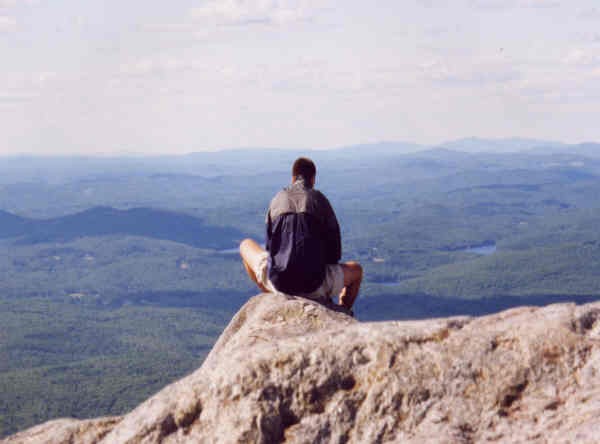|
Read 20 questions a journalist should ask about poll results
Points to ponder
- It might be easier to understand the differences between classical liberalism and (traditional) conservatism if we change the order in which Danziger introduces them
- Classical liberalism can be best understood as a challenge to the traditional order of society based on monarchy, aristocracy, and the Church
- Classical liberalism puts the emphasis on individuals and liberty (their right to do as they wish—so long as they don’t harm another person, another person’s property, or another person’s liberty)
- It is no coincidence that classical liberalism flourished with the rise of capitalism and its praise of “free enterprise” (recall Danziger, ch. 8)
- Conservatism, or at least its traditional or classical version, was a defense of traditional authority (the monarchy, the aristocracy, and the Church)
- Traditional conservatism puts a premium on maintaining the virtues and stability of the community as a whole and, so, regards as a threat the idea that individuals should be allowed to do whatever individuals wish to do
- Contrary to what Danziger (30) says, traditional conservatives are not necessarily hostile to all government social welfare policies, at least not if they contribute to the stability and well-being of the community; witness the eminently conservative Otto von Bismarck who is widely credited as the founder of the program we call “social security”
- Danziger (33) may not be sufficiently clear on the point that socialists regard capitalism as the cause of inequality and misery, and so they favor either a communist command economy with social control over the means of production or heavy state regulation of the economy with generous social welfare programs (the democratic socialist variant)
- For all the discussion of political ideology, political theory does not play a big role in the political world of the mass public (that is, everyday citizens)
- Instead, as Danziger (41-42) explains, the typical citizen
- Doesn’t act as if politics is very salient
- Thinks about politics, to the extent to which he or she does, in nuts and bolts ways, not as ideologues
- Reacts to issues with a very short-term, crisis-of-the-day perspective (recall the periodic peaks of concerns about energy supplies, and energy prices, when the problem has been with us, and growing worse, since the 1960s)
- Doesn’t show much reliability, or consistency, over time (it is not unusual for a given person’s response to a poll question to change over the period of months or a year, change which seems best explained by the idea that citizens don’t think much about issues rather than they thoughtfully change positions)
- Doesn’t show much evidence of lining up views on issues in a patterned way (as a result, knowing one person’s view on one issue is not likely to help one guess how they will stand on another issue, which suggests that opinions are casually expressed)
- Lacks information on politics and government, demonstrating little knowledge of government institutions and practices, political figures and their policy stands, or public policy issues
- Take a look at selected data from Almond and Verba’s (1963) study of political culture, a study conducted in the late 1950s and described by Danziger (44-46)
- On the process of political learning, or, as it is more formally called, political socialization:
- Note that peer groups would also include those from childhood and young adulthood: think of how kids in a group develop their leadership skills in deciding what games to play, how they develop their interpersonal skills in managing relations with networks of friends, and think also of the political process and political issue material involved in formal and informal groups in high school and college
- Danziger (88) makes an important point when he says political socialization is a matter of lifelong persistence, such that political learning continues to occur but builds on the base of prior learning; reflect on how you have changed recently in political orientations and behavior and on the degree to which your current political self still bears the effects of earlier learning
- Most of us are convinced, in our media-saturated world, that television, films, the web, and other mass media must have tremendous political effects, that media sources are influencing people’s political attitudes and behaviors
- It turns out that because we are bombarded by so much mass media communication, it often proves very difficult to empirically demonstrate the effects
- In any event, people consume news selectively
- As the 17 January 2007 Pew study of news consumption shows in its discussion of “Media Choices of Republican and Democratic Voters” (5-6), party identifiers choose different news sources (Fox v CNN, for example)
- And psychological evidence suggests strongly that people screen out information that is not salient to them or that is inconsistent with what they already believe
- On the other hand, people can only be affected by what is presented to them and so the media agenda—what is covered and how—is politically significant (as the line goes, the media don’t control what people think, but they do control what people think about)
- Note, however, that profit-seeking media organizations are guided by what generates an audience, and so issues to which the public is not receptive will not get much coverage
- One of the keys to political success for politicians, interest groups, and political activists is to get media coverage for their issues so as to get them on the agenda
- The impact of certain events on political socialization should not be underestimated, but this impact is often most significant for the cohort (or generation) that is coming of age politically at the time; examples would be children beginning their exposure to politics when news was dominated by the Clinton scandal or the 2001 terrorist attacks; a nice study (citation not at hand) showed that Tacoma elementary school children’s trust in the President was about ten points lower in 1972 than it had been in 1962, a decline attributable to the effects of Watergate
- When Danziger (84-96) talks about the relationship between socioeconomic characteristics and political behavior, he is talking about the Verba and Nie modes he discussed in his ch. 3
- Just as some areas of political science rely on economics (recall the discussion of political economy), efforts to explain political attitudes and behavior often draw on various parts of the field of psychology
- While it is reasonable to expect the personality has an effect on the political behavior of both the mass public and political leaders, demonstrating the effects empirically is not easy
- For those who are interested in personality, and how personality may play a role in politics, you can investigate one of the conventional approaches to assessing personality (I have a personality, can you say the same?—take the test if you wish)
Questions to consider
- Why might it be said that socialism (both the democratic socialism and Marxism-Leninist varieties) and conservatism and fascism are related to each other, and all opposed to classical liberalism, because of their collectivist rather than individualistic perspective?
- If classical liberalism is not the same as contemporary liberalism (Danziger, Box 2.1) is the conservatism that Danziger describes the same as the conservatism we see and talk about today? If the Republican Party is the more conservative of the two major US political parties, is it a case of economic conservatism or social conservatism (for a dated but still useful example, see Schneider's piece on the lead-up to 2000)? Are not economic conservatives at odds with the social conservatives about the proper role of government?
- Whatever became of classical liberalism? (Hint: Ever heard of the Libertarians? Know what’s in their platform?)
- How does a 2002 Pew study on news consumption fit with what Danziger (41-42) has to say about the political engagement of the mass public in the US and western democracies?
- In the methodology section of that 2002 Pew study on news consumption, there is the statement, “Based on the total sample, one can say with 95% confidence that the error attributable to sampling and other random effects is plus or minus 2 percentage points.” What the heck does that mean?
- One of the explanations Danziger gives for voting even though it seems to be irrational (83-84) is that one might love her “country and its democratic tradition” or “want to be a small part of a large voice” or “want the approval” of others. In which case, recalling the assumption of rationality, is voting irrational?
Assignment To explore your political thinking, test your Political Compass (the test is toward the top on the left of the Political Compass page) and send me your two scores, but this time by e-mail. Put your scores--economic first, social second--in the subject line. I’ll plot the class results without names and post them (and once I’ve logged your submission of the scores I’ll destroy your e-mail). Due by noon Friday 7 October.
|

